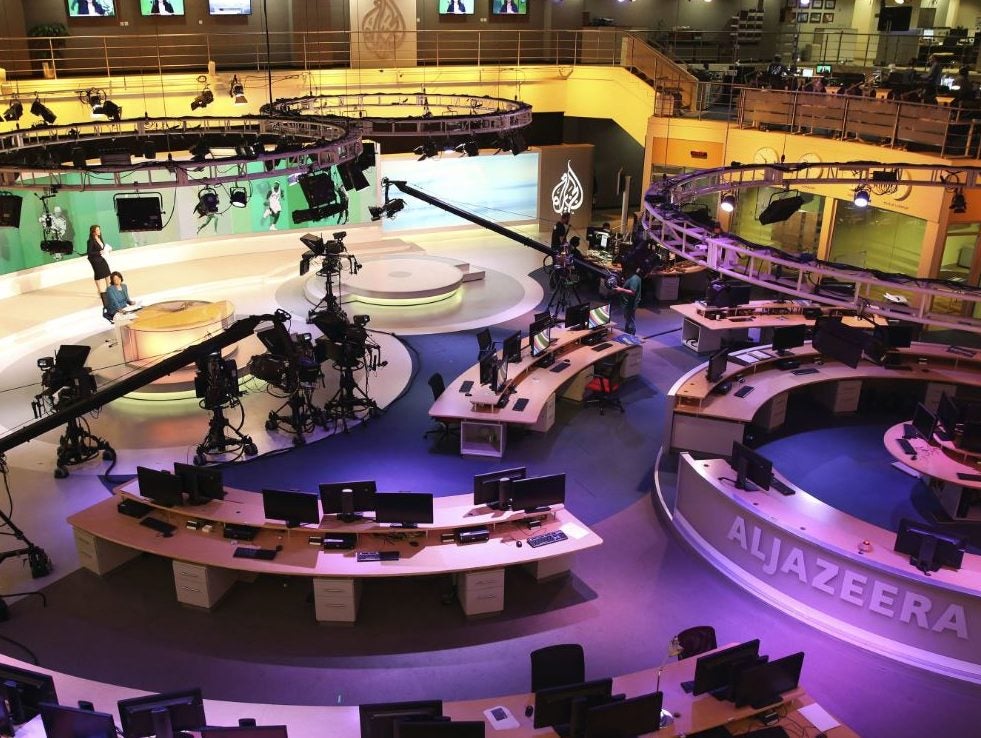
The fate of Al Jazeera remains uncertain as Egypt’s foreign minister said there could be no compromising on demands against Qatar, but Saudi claims shutting down the broadcaster may not be necessary.
Closure of the broadcaster, which provides an English and Arabic news service, was sixth on a list of 13 demands put to Qatar by four Gulf states over claims the country had been supporting terrorism.
AL Jazeera is based out of Doha, the Qatari capital.
Egpytian foreign minister Sameh Shoukry said at a press conference yesterday in Brussels: “It is not an issue of compromise, we cannot compromise with any form of terrorism, we cannot compromise or enter into any form of negotiations,” Al Jazeera reported.
“It is only once the necessary measures are undertaken by Qatar, that goes towards truly accepting to be a partner in the fight against terrorism, that this crisis will be resolved.”
In recent weeks, the demands against Qatar have been softened in favour of a “fundamental change and restructuring” of Al Jazeera rather than complete closure.
Abdallah al-Mouallimi, Saudi Arabia’s ambassador to the UN, said that while the four Gulf countries believe stopping incitement to violence is essential, the closing of Al Jazeera might not be necessary.
“If the only way to achieve that is by closing down Al Jazeera, fine,” Al Jazeera reported him as saying. “If we can achieve that without closing down Al Jazeera, that’s also fine. The important thing is the objective and the principle involved.”
Qatar’s foreign minister Sheikh Mohammed bin Abdulrahman Al-Thani said that while Doha is willing to engage in dialogue on a range of issues, it will not negotiate over internal affairs.
At a Frontline Club event last week, head of Al Jazeera English Giles Trendle said it was “business as normal” at the network, according to Al Jazeera. “We’re just getting on with our jobs,” he said.
A number of rights organisations have unilaterally condemned the Saudi-led attack on Al Jazeera and other Qatari media outlets.
At a conference yesterday organised by Qatar’s National Human Right Committee, the group expressed their “total solidarity” with journalists and other media staff at Al Jazeera and other targeted outlets.
The former general director of Al Jazeera, Wadah Khanfar, rejected claims that Al Jazeera provided a platform to terrorist groups.
Interviews with groups such as the Muslim Brotherhood were carried out due to necessity and journalistic interest, he said. He denied any instance of promoting terrorist interests had ever taken place.
Joel Simon, the executive director of the Committee to Protect Journalists, has issued a statement defending the right to a free press.
“CPJ condemns the use of news outlets as a bargaining chip and calls on all countries involved in this dispute to stop holding media hostage to political disputes,” he said.
“The Gulf region needs a vibrant free press and news outlets based there must be allowed to report freely.”
In a statement, Al Jazeera said: “Once again we reiterate: ‘Journalism Is Not a Crime’.”
Email pged@pressgazette.co.uk to point out mistakes, provide story tips or send in a letter for publication on our "Letters Page" blog
